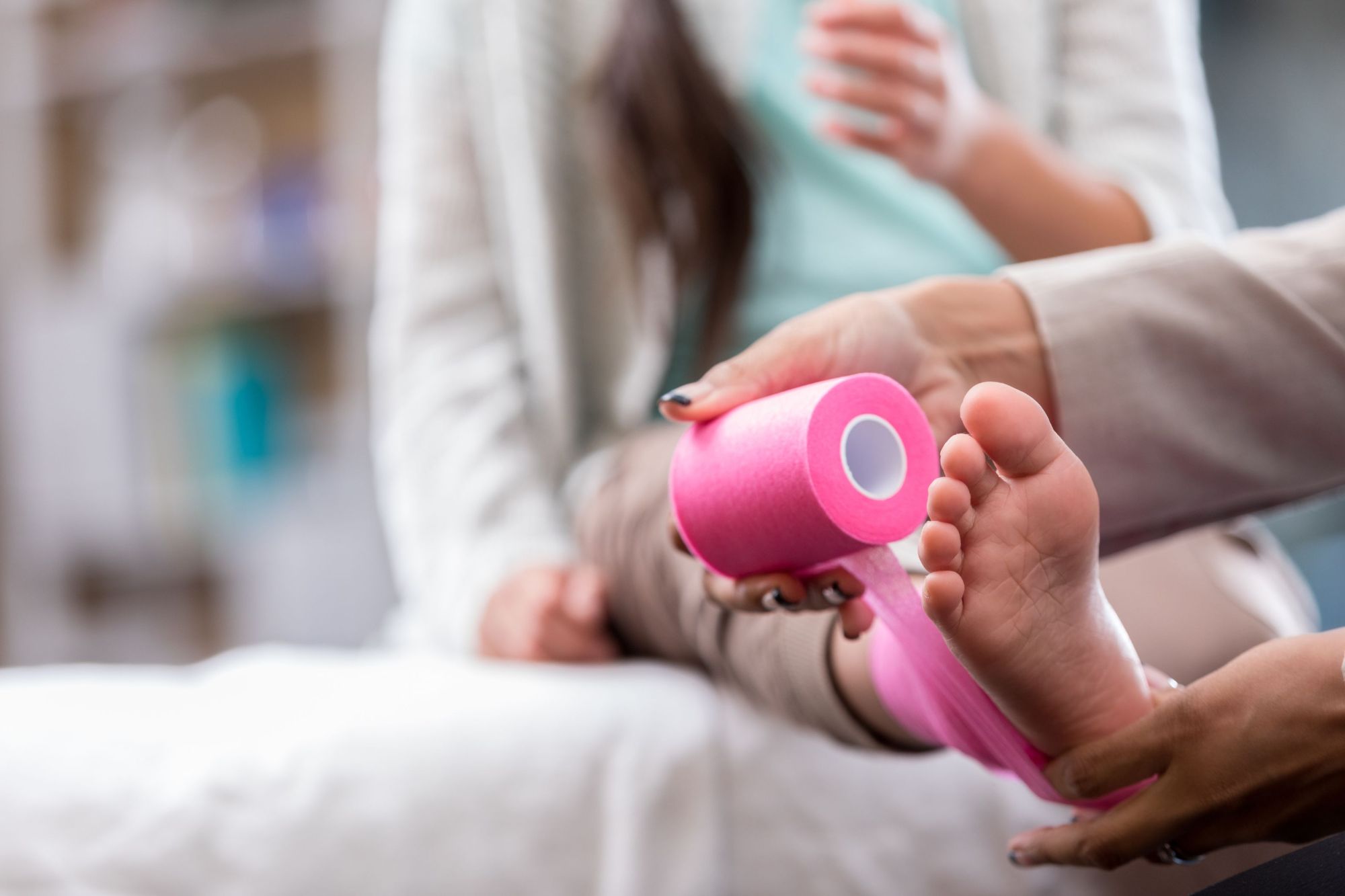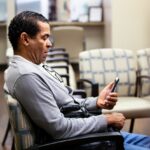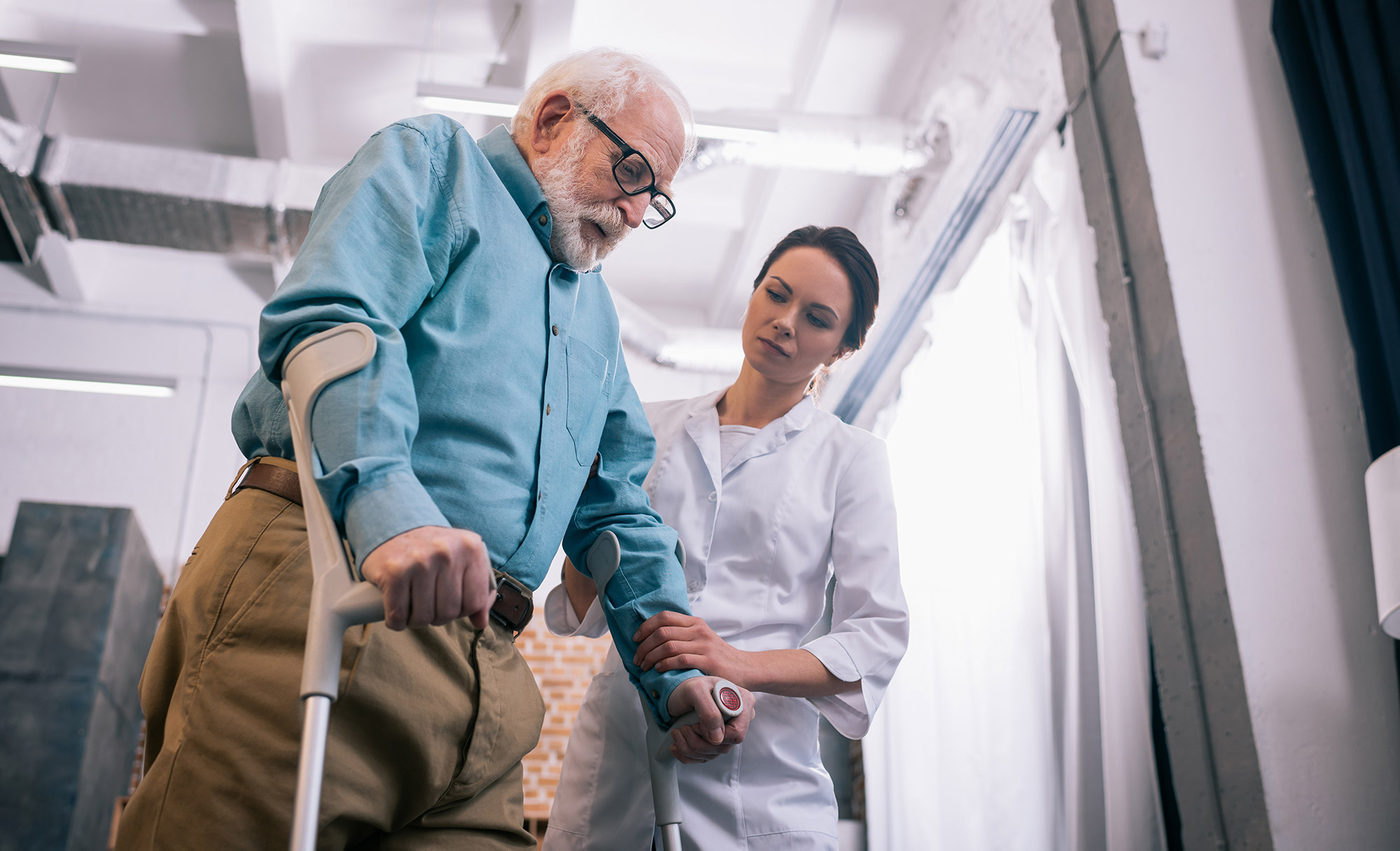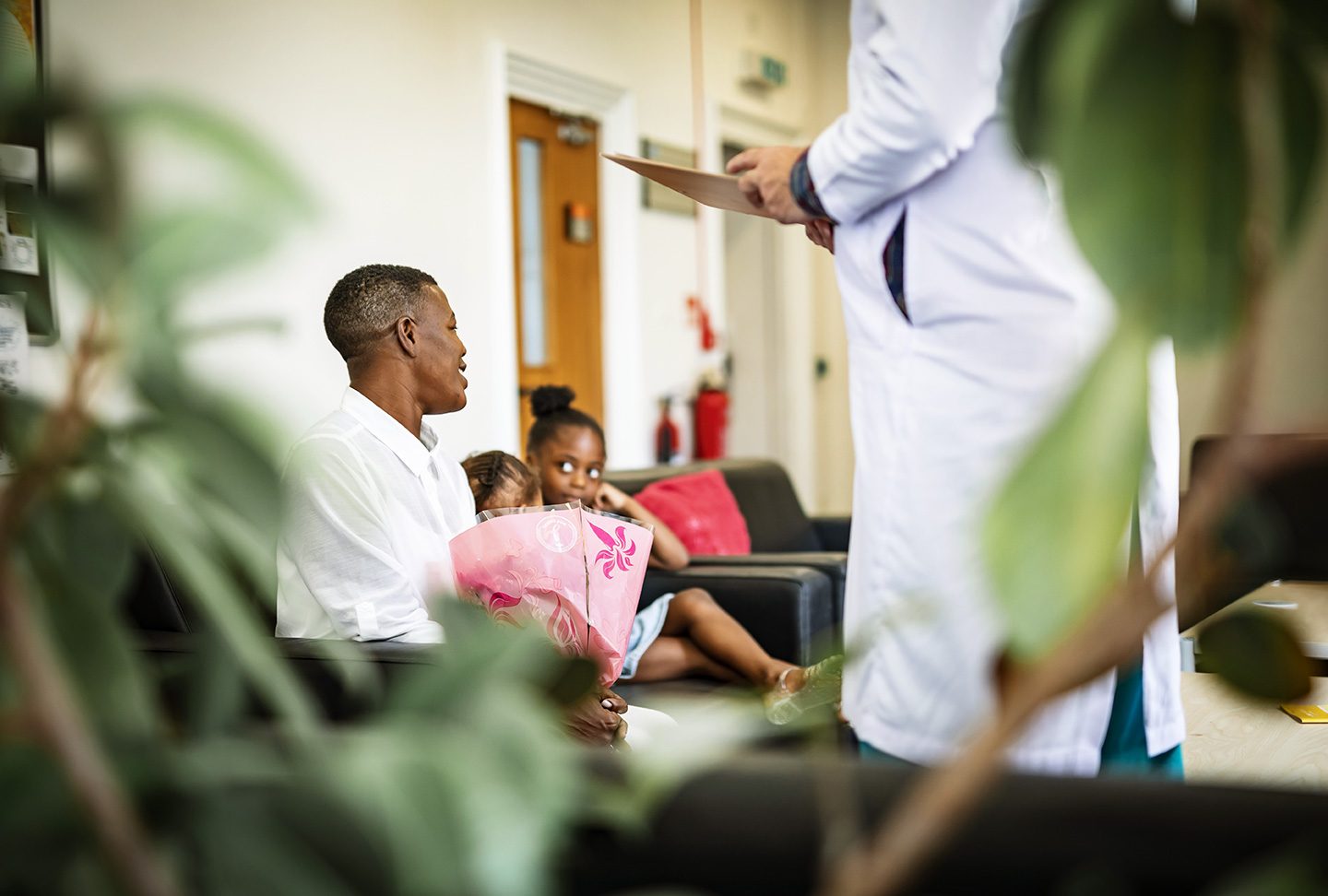About the Coming Soon
.
This course is best for:
-
Leaders
-
Physicians
-
Staff
-
Anyone looking to improve healthcare communication
DEI- Coming Soon
Contact Us to Get Started
No products in the cart.
.

With the launch of the Primary Care First (PCF) payment model, there is an urgency to reflect on and evaluate where we, in clinical practices, stand in our delivery of excellent, “always” patient care experiences. In this 12-video lesson course you will be equipped to take the PCF patient experience survey through your patients’ perspective, identify the 5 specific domains that will be reported and gain knowledge to improve where you find gaps.


Learn the power of excellence to create loyalty and valuable referrals to your practice. It’s all about understanding the patient perspective and creating strategies and processes to shape their perceptions. Ask yourself, “What do I want my practice to be known for and why?” In How are patient perspectives about your practice being shaped? What are the gaps and strengths in areas that are important to our patients? In this lesson we look at how patient perceptions are formed at key touch points in the primary care experience and how we as providers can elevate excellence in our practice. Learn key areas where our patients are influenced in their perceptions of their experience as well as the five domains that will be measured and reported. (Video Duration 11mins:50s)

This lesson is a deep dive into the Patient Experience of Care Survey (PECS) with information on the fundamentals of the survey. Help your team understand the expectation that the PECS creates. We focus on an introduction to the Primary Care First program, the PECS, as well as how your practice is scored, and what domains are included. Learn which patients are eligible to receive the survey and the method in which patients are contacted and followed up with to enlist survey participation. Equip your team with strategies and steps to improve patient experiences with this new accountability. (Video Duration 10mins:29s)

In healthcare, our environment is very familiar and makes sense to us. To improve the patient experience and performance on the PECS, we must take the time to view our very familiar environment through our patents’ eyes. Use the eWorksheet included in this lesson and take the PEC survey from your patients’ perspective. If your spouse, parent or other loved one walked into your practice, what would an excellent experience look like? (Video Duration 3mins:58s)

The first domain in the PECS regards Access to Your Practice. Our patients are evaluating ease of contacting our practice team to get appointments for urgent matters, routine checkups and getting information they feel necessary to keep them healthy or answers to medical questions. The goal of the PECS is that our patients will increasingly rate us as “Always” in this domain. Learn the areas where you can focus intention to improve and strategies to make those improvements, such as rounding on patients, the flow of scheduling, the timeliness of response to phone calls. (Video Duration 5mins:18s)

Provider communication is crucial to influencing how patients perceive their care- positively or negatively. Even with our best intentions the patient can miss or overlook important care cues. How are we showing our intentions to our patients? For instance, if we intend to make the patient feel we spent enough time with them, is our hand on the doorknob while we’re still listening/talking? How can we explain in a clear and kind way the expectations of treatment and timelines? Demonstrating our intentions and engaging our patients in their own care creates to positive outcomes. Learn practical skills to boost your provider’s communication with patients and families. (Video Duration 8mins:18s)

When it comes to following up with results of diagnostic tests, or consulting providers treatment plans do we share our patient’s urgency? This domain focuses in on how patients hold us accountable for results of tests and prescribing medication. In this lesson discover strategies and easy to implement ideas that will elevate your patient’s perceptions of how we are coordinating their care with our easy to use action planning tool. (Video Duration 5mins:26s)

Stepping into the patients’ “shoes” when they come into our care includes anticipating their needs and challenges when they are not with us. Engaging our patients in their own care not only helps us in caring for them, it also leads to greater compliance and better outcomes in their health. In this lesson you will be equipped to look for cues regarding the patient’s overall ability to take care of themselves and tips in communicating with patients about how best to partner with them in taking care of their own health. (Video Duration 5mins:15s)

As in the other domains, the overall rating in the PECS reflects the last six months, with a focus on the totality of the patient’s experience in your care. In this lesson, learn what patients cue in on to determine the quality of their experience. Use key strategies to communicate effectively with your patients to build trust and confidence. (Video Duration 7mins:26s)

In the PECS there are other questions outside of the 5 core scored domains that give patients the opportunity to give feedback on the quality of their experience. Learn in this lesson what these other areas include, the questions patients are being asked, and how their answers can support you in your overall strategies to make improvements in your practice’s patient experience performance. Understand the technique and value of Experience Mapping. (Video Duration 6mins:34s)

With the launch of the new Patient Experience of Care Survey, patients are being asked if they received excellent care “Always”. This is the standard by which patients are measuring us and their experience while in our care. Discover how to boost your communication through the CARES™ model for creating highly reliable patient experiences, to empower and inspire your team to make positive memorable experiences for your patients. (Video Duration 7mins:56s)

Communication is a key driver in providing an “always” experience for patients. Discover in this video how to elevate your communication and active listening to yield patient experience performance increases and ensure patients perceive a positive experience in your care. (Video Duration 6mins:01s)

Pivoting forward, not looking back where can you begin to make improvements in the patient experience in your practice? In this lesson learn how and where you, as a leader can steer and strategize development time and dollars and create alignment and vision with your team and in your practice. (Video Duration 3mins:36s)
The HX Academy All Access Pass is the most comprehensive learning option to make immediate real change, and to pursue excellence always-every patient, every time in your organization. The All Access Pass will equip your team with an all-inclusive training solution. In this growing library of courses and videos of bite sized micro learnings you will gain a command of a variety of competencies in communication, improving the patient experience, growing your EQ or emotional intelligence capacity, and learn to manage and even leverage conflict that inevitably arises; as well as elevate your responses to patient and family concerns to positively effect critical outcomes and boost patient loyalty.


What is physician engagement and how is it defined? In this video lesson recognize the impact of physicians that are fully engaged with strong alignment and commitment both emotionally and intellectually to the organization. Discover the power of creating quality physician engagement and loyalty as well as the key drivers to focus on. Learn the impact of Executive Amplification and how it influences physician perceptions. (Video Duration 19mins:49s)

In healthcare most leaders have or are currently practicing a form of Senior Leader Rounding. The question is, what is the impact of your Senior Leader Rounding? In this lesson learn good vs best in strategies and steps of Senior Leader Rounding. Discover how effective and successful Senior Leader Rounding lead to greater engagement and advanced performance outcomes through relationships. (Video Duration 27mins:18s)

In this third lesson, we focus on skills and processes to create sustainable practices that will engage physicians and medical staff to demonstrate ongoing participation in key strategic and operational decisions and reinforce physician/administration trust. Discover specific steps and strategies that executives can implement immediately in rounding on physicians to capture and act on feedback. (Video duration 16mins: 31s)

Learn the power of excellence to create loyalty and valuable referrals to your practice. This session deep dives into understanding the patient perspective and creating strategies and processes to shape their perceptions. In this course discover practical steps you can implement immediately to improve the patient experience. (Video Duration 9mins:06s)

Learn the power of excellence to create loyalty and valuable referrals to your practice. This session deep dives into understanding the patient perspective and creating strategies and processes to shape their perceptions. In this course discover practical steps you can implement immediately to improve the patient experience. (Video Duration 9mins:06s)

There is no question that wait times impact the perceptions of our patients. Discover in this lesson how to set expectations early and often. Create processes that anticipate the needs of patients as well as physicians and providers to set up everyone for positive interactions and experiences. Get motivated to make improvements and build on areas where you’ve seen some success. (Video Duration 6mins:58s)

Integral to the patient experience is to validate care and assure expectations are met. Rounding is a proven way to get to know your patients and learn about their experience. It’s our opportunity to build trust, perform service recovery, and reach the goal of “always” excellent patient experiences. Learn in this lesson how to effectively conduct patient rounding and use service mapping to assess your own service excellence. Discover the power of asking, evaluating and creating action plans have in jump starting your patient experience practices. (Video Duration 6mins:52s)

Boosting your confidence and that of your team is the first step to successfully identifying and responding timely to a patient or family concern. Every service disappointment holds the opportunity for us as healthcare providers to recapture the trust and confidence of patients and their families. A well-developed Service Recovery plan that includes messaging and actions will build that trust not only with patients but within the healthcare team. (Video Duration: 2min:54s)

As healthcare leaders, physicians and staff we know our “world”, how things work, who works with who and we can form realistic expectations. Our patients and their families are new to our world and can form incorrect expectations without even knowing it, which can lead to service disappointments. By walking in our patients’ slippers, seeing things from their position in an exam gown we can prevent service failures before they happen. Paying attention to wait times, asking questions, anticipating a schedule change and communicating. These are just the surface of the well of opportunities we have to cue into patient needs. (Video Duration: 2min:20s)

Sometimes despite our best efforts to anticipate service failures, our patients are dissatisfied and silent. We need to take steps to discover and make it safe for patients to voice their concern. Taking the first step in acknowledging a potential disappointment or one that has occurred helps build confidence in our patients to share their concern or hurt. Building strategies to uncover patient and family disappointments provides a platform to confidently approach patients and give them the opportunity to share how we can serve them better. (Video Duration: 2min:37s)

Our response to a service disappointment is key to retaining the confidence of our patients and their families. The healthcare experience is the culmination of varied touch points with healthcare providers. Therefore, our opportunity to encounter a patient with a service disappointment outside of our department or control is very real. No matter where or how the disappointment occurred we can use the opportunity to create good will and shape a positive memory for the patient. (Video Duration: 1min:34s)

At the heart of service recovery is recognition that a conflict has occurred, taking swift action to resolve the issue and building trusting relationships with patients and their families. The Conversation Curve is a conflict management communication model that helps you match the conflict with communication techniques and actions that meet the patient and family perceptions. (Video Duration: 4min:07s)

Creating HCAHPS excellence in our organization requires a roadmap with guideposts to show us where we can improve. In this course discover why the “Always” culture is important and how it leads better outcomes across the organization. Learn how achieving “always, every time” is reflected in your HCAHPS survey results. (Video Duration: 10min:50s)

Understanding the why behind HCAHPS, how our patients are being surveyed and in what areas is key to knowing how best to leverage the “voice” of the patient through HCAHPS data survey results. Gain a firm foundation of HCAHPS in this fundamental micro learning. (Video Duration: 16min:32s)

Learn why the patient perspective is so important. Understanding patients’ perceptions of the healthcare experience vs our view will unlock actionable steps to improve your patient experiences of care. Discover six ways you can increase your ability to” walk” in your patient’s slippers, gown, or gurney. (Video Duration: 22min:08s)

Providing consistency in our care is crucial to achieving best outcomes related to quality to safety to financial and more. We must focus on the “always” experience with every encounter to develop a culture of excellence. Following the CARES model for highly reliable patient experiences will give us the actions steps behind our intent to serve with excellence. (Video Duration: 19min:06s)

Sometimes the biggest obstacle to improving is knowing where to start. In this very impactful and practical lesson you will be given a set of competencies and tools to support you in your work to improve HCAHPS in your organization. (Video Duration: 16min:54s)

The emergency department holds one of the most important transitions of care, ED to a unit. This one transition influences a patient’s perceptions in how we are doing in more than one HCAHPS domain. Grow in your knowledge of key drivers that impact your HCAHPS survey. (Video Duration: 6min:24s)

Building teams through internal coaches that are focused on creating an “always” culture by providing excellence patient experiences will escalate your successes with each of the HCAHPS survey domains. In this lesson learn about a HCAHPS Experience Guide can be a key resource in developing your internal coaches. 8:32(Video Duration: 8min:32s)

Discover what weight each question in this domain carries and how it influences each of the other questions. Success in this domain depends upon leadership communication and engagement with bedside care givers. Learn how this domain influences all of the domains in the HCAHPS survey. (Video Duration: 4min:23s)

This domain in the HCAHPS survey is where your patients rate their experience with all medical staff beginning in the emergency department and their hospital stay. Learn how you can create strategies with physician champions leading the way in impacting patient perceptions. Your HCHAPS Experience Guide is a great source to develop your strategies. (Video Duration: 8min:26s)

Gain tools and resources to create practical strategies to improve your patients’ ratings on the HCAHPS survey. Dive into the four questions patients use to rate on our responsiveness while staying in our hospital. Learn how patient perceptions may differ from our as providers and caregivers. (Video Duration: 5min:19s)

Using your HCAHPS Experience Guide, discover how leaders and staff can set patient expectations, narrate our work, and use patient rounding to gain real time feedback to make adjustments as needed. Grow in your knowledge of patient’s standard of expectations that guide their survey responses. (Video Duration: 6min:58s)

Deep dive into the two items on the HCAHPS survey effect your patients rating on how well they understand what we are saying when we give a new medication. This domain is critical to quality and patient experience outcomes. Learn ideas, strategies and techniques that will support your teams in excellent medication communication. (Video Duration: 5min:03s)

Use your HCAHPS Guide as a support in learning about every question in this HCAHPS domain and what the average ratings in this domain are nationally. Discover the risks of lack of adherence in discharge or transition instructions when leaving the hospital. Learn how to demonstrate the importance of medication communication, medical appointment follow up, and all of the instructions given. (Video Duration: 6min:35s)

Overall ratings reflect a patient’s perceptions while in your care over a multitude of touch points. Move from very good to excellent by using your HCAHPS Experience Guide to boost your organizations performance by an understanding of what specifically influences your patients overall rating. (Video Duration: 4min:28s)

Learn the key components to consistency and sustainability to improvement programs in any area- HCAHPS, Quality, Patient Experience, etc. Through a focus on 5 key steps, you can make a clear path to build momentum and sustain gains that maintain success in your organization. (Video Duration: 10min:31s)

Communicating successfully deserves our full attention. It is crucial in avoiding negative outcomes, building trust with patients and families, and each other. Learn through the CARES™ Model how to create a more authentic experience between caregivers and patients. Communication with patients and each other is one of the most frequent areas leaders, physicians and staff are looking to grow. The CARES™ Model works in every area level of care, in every care setting because CARES™ begins with empathy. (Video Duration: 3min:50s)

First impressions are important! In healthcare it is vital that we quickly project confidence in ourselves and build confidence for our patients. When patients have trust in us, they will be more likely to participate in their care. This will promote their own healing and wellness. Learn steps that you can take today to project your confidence and build up patient and family confidence to engage in their care. (Video Duration: 3min:37s)

We are in healthcare because we want to make a difference for our patients. Anticipating your patient’s needs requires empathy. Learn how to view the tasks you are performing from your patient’s perspective. Learn how to recognize subtle gestures and pick up on body language in your patient. Create a deeper connection with your patient by anticipating needs beyond the clinical boundary. (Video Duration: 3min:00s)

Communication is one of the most significant drivers of the patient experience and biggest contributors to medical errors. In the CARES™ Model of communication Respectful Communication will guide you to improve your communication skills beyond the words we use. We all are subject to miscommunicating through body language, lack of empathy or compassion, or using medical jargon. Reorient yourself to communicating in a way that builds trust and reduces anxiety. (Video Duration: 4min:16s)

Helping our patients understand what we are doing and why is critical to providing excellent care. By narrating our care, we engage our patients in their own care. Learn steps you can take in each interaction with patients that will eliminate miscues, avoid misunderstandings, and set expectations early and often. (Video Duration: 3min:01s)

What do you want your patients to remember about their experience with you? When our care time is completed and the patient moves on to home or another department, it is important that we consistently express gratitude for the opportunity to care for them. Also, we can build confidence in teamwork when transitioning to a new area or team member by managing up that team or caregiver. Learn how to take these steps and make a lasting impression for your patients. (Video Duration: 3min:14s)

You can be prepared to manage conflict when it arises. Unresolved conflict has a ripple effect throughout departments. Most leaders either avoid or struggle to handle it. Learn how, by using the Conversation Curve™ model, to bring conflicts to positive resolution. (Video Duration: 2min:58s)

You can stop the cycle of avoidance and allowing conflict to continue in your department or organization. Learn how to prepare for success by knowing how to anticipate what can go right and what can go wrong when planning for a difficulty conversation. As leaders we cannot afford not to have these conversations and this tool will allow you to ensure success.(Video Duration: 2min:29s)

Set yourself up for positive outcomes in difficult conversations. With these careful steps in planning you can avoid the win vs lose scenario and find a constructive path forward that will deepen your relationships. (Video Duration: 6min:11s)

As caregivers we must build trust with our patients and their family members. Empathy is the ability to understand and share feelings of another. Empathy is key to build trust and engage patients in their own care. Learn how you can build your empathy “muscle” and engage with your patients by seeing their world and understand their feelings. (Video Duration: 2min:35s)

In our work as healthcare providers we can run low on energy and lose empathy for our patients. When this happens, patient labeling becomes common. Patient labeling can lead to behaviors that sabotage efforts to attain a higher level of patient centered care. Learn what you can do to avoid patient labeling and restore empathy for patients. (Video Duration: 3min:54s)

Learn how to understand and improve the experience your patients are having in your organization. What are the barriers to improving the patient experience? Create a path to help your teams rediscover why they are in healthcare and renew their focus on the patient experience. (Video Duration: 5min:19s)

As a new or tenured leader, this course is designed to engage the continual learner in the foundational and differentiating skills of emotionally intelligent individuals. When leaders apply the key skills of emotional intelligence their individual and team effectiveness expands. Learn interpersonal strategies and key outcomes associated with emotional intelligence. (Video Duration: 13:03)

In our day-to-day demands as healthcare leaders we can miss subtle opportunities to grow our self-awareness and the impact we have on others. With self-awareness, we have the capacity for self-management- especially in stressful or tense situations (typical in any given day). Learn why personal competence for self awareness and management matters for you, common misperceptions, and daily habits to be more successful. (Video Duration: 15:50)

Learn how to understand the emotional make up of other people and how to manage and build the most effective relationships. Adopt key strategies to expand your social awareness in a way that grows trust, influences change, and cultivates mutual respect. These are essential components for building teams and creating healthy teamwork- which leads to the safest patient outcomes. (Video Duration: 15:21)

Mastering emotional intelligence requires daily diligence. This course will sharpen your toolset with a personalized competency assessment to keep you on track for continual growth, and 10-steps to adopt daily habits of emotionally intelligent leaders. (Video Duration: 13:19)

Learn the power of excellence to create loyalty and valuable referrals to your practice. It’s all about understanding the patient perspective and creating strategies and processes to shape their perceptions. Ask yourself, “What do I want my practice to be known for and why?” In How are patient perspectives about your practice being shaped? What are the gaps and strengths in areas that are important to our patients? In this lesson we look at how patient perceptions are formed at key touch points in the primary care experience and how we as providers can elevate excellence in our practice. Learn key areas where our patients are influenced in their perceptions of their experience as well as the five domains that will be measured and reported. (Video Duration 11mins:50s)

This lesson is a deep dive into the Patient Experience of Care Survey (PECS) with information on the fundamentals of the survey. Help your team understand the expectation that the PECS creates. We focus on an introduction to the Primary Care First program, the PECS, as well as how your practice is scored, and what domains are included. Learn which patients are eligible to receive the survey and the method in which patients are contacted and followed up with to enlist survey participation. Equip your team with strategies and steps to improve patient experiences with this new accountability. (Video Duration 10mins:29s)

In healthcare, our environment is very familiar and makes sense to us. To improve the patient experience and performance on the PECS, we must take the time to view our very familiar environment through our patents’ eyes. Use the eWorksheet included in this lesson and take the PEC survey from your patients’ perspective. If your spouse, parent or other loved one walked into your practice, what would an excellent experience look like? (Video Duration 3mins:58s)

The first domain in the PECS regards Access to Your Practice. Our patients are evaluating ease of contacting our practice team to get appointments for urgent matters, routine checkups and getting information they feel necessary to keep them healthy or answers to medical questions. The goal of the PECS is that our patients will increasingly rate us as “Always” in this domain. Learn the areas where you can focus intention to improve and strategies to make those improvements, such as rounding on patients, the flow of scheduling, the timeliness of response to phone calls. (Video Duration 5mins:18s)

Provider communication is crucial to influencing how patients perceive their care- positively or negatively. Even with our best intentions the patient can miss or overlook important care cues. How are we showing our intentions to our patients? For instance, if we intend to make the patient feel we spent enough time with them, is our hand on the doorknob while we’re still listening/talking? How can we explain in a clear and kind way the expectations of treatment and timelines? Demonstrating our intentions and engaging our patients in their own care creates to positive outcomes. Learn practical skills to boost your provider’s communication with patients and families. (Video Duration 8mins:18s)

When it comes to following up with results of diagnostic tests, or consulting providers treatment plans do we share our patient’s urgency? This domain focuses in on how patients hold us accountable for results of tests and prescribing medication. In this lesson discover strategies and easy to implement ideas that will elevate your patient’s perceptions of how we are coordinating their care with our easy to use action planning tool. (Video Duration 5mins:26s)

Stepping into the patients’ “shoes” when they come into our care includes anticipating their needs and challenges when they are not with us. Engaging our patients in their own care not only helps us in caring for them, it also leads to greater compliance and better outcomes in their health. In this lesson you will be equipped to look for cues regarding the patient’s overall ability to take care of themselves and tips in communicating with patients about how best to partner with them in taking care of their own health. (Video Duration 5mins:15s)

As in the other domains, the overall rating in the PECS reflects the last six months, with a focus on the totality of the patient’s experience in your care. In this lesson, learn what patients cue in on to determine the quality of their experience. Use key strategies to communicate effectively with your patients to build trust and confidence. (Video Duration 7mins:26s)

In the PECS there are other questions outside of the 5 core scored domains that give patients the opportunity to give feedback on the quality of their experience. Learn in this lesson what these other areas include, the questions patients are being asked, and how their answers can support you in your overall strategies to make improvements in your practice’s patient experience performance. Understand the technique and value of Experience Mapping. (Video Duration 6mins:34s)

With the launch of the new Patient Experience of Care Survey, patients are being asked if they received excellent care “Always”. This is the standard by which patients are measuring us and their experience while in our care. Discover how to boost your communication through the CARES™ model for creating highly reliable patient experiences, to empower and inspire your team to make positive memorable experiences for your patients. (Video Duration 7mins:56s)

Communication is a key driver in providing an “always” experience for patients. Discover in this video how to elevate your communication and active listening to yield patient experience performance increases and ensure patients perceive a positive experience in your care. (Video Duration 6mins:01s)

Pivoting forward, not looking back where can you begin to make improvements in the patient experience in your practice? In this lesson learn how and where you, as a leader can steer and strategize development time and dollars and create alignment and vision with your team and in your practice. (Video Duration 3mins:36s)

Research demonstrates 40%-60% of physicians and clinicians during their careers; and up to 50% of residents report experiencing burnout. In this comprehensive course on Burnout and Resilience you will learn how to define burnout in yourself, recognize in others; expand awareness of the impact it has on physicians, providers, clinicians, and the organization. Most importantly, we will equip you with strategies to intervene individually and with your colleagues. (Video duration 4mins: 12s)

Moving beyond describing the definition and symptoms, in this lesson we deep dive into how to have courage to speak up and step up when you feel burnout is present in yourself and others. Find steps and techniques you can use to pause and commit to intervening when you suspect burnout is having an impact. (Video duration 6mins: 30s)ion 4mins: 12s)

In this lesson learn the truth and myths of self-compassion. While we in health care consistently give compassion to those in our care, we don’t readily extend compassion to ourselves and each other. Self-Compassion is a growing body of work in the environment of healthcare. Gain insight in how you can grow in your mindfulness to practice compassion toward yourself and others. (Video duration 6mins: 30s)

Resilience, the thing that keeps us centered and grounded during periods of enduring challenges. In this lesson learn what resilience is, how to recognize it, and ways to cultivate it individually and with your teams. Discover the key elements to build resilience in yourself and your teams and find tips you can implement today. (Video duration 6mins: 30s)

In this lesson learn the definition of burnout and how to recognize the signs and symptoms. Gain insight into sources and risk factors of burnout in healthcare. (Video duration 12mins: 10s)

Burnout has a cost, its effects touch personal and professional areas as well as quality and safety of care in our organizations. In this lesson learn what leads to burnout in healthcare and how stress is different than burnout. Discover the impact on physicians and organizations. (Video duration 12mins: 43s)

In light of COVID and the crisis it created and the aftermath of it, communicating that burnout is a concern and may be pervasive is crucial. In this last lesson in the Burnout and Resilience series discover multiple faceted approaches at the organizational and personal levels to mitigate burnout and build engagement opportunities with physicians, clinicians and leaders. Video duration 12mins: 43s)
The Conversation Curve™ is a conflict resolution model that can guide a difficult conversation to a positive resolution. This tool provides a path to break down barriers and teaches the value of true, two-way communication in difficult situations.


You can be prepared to manage conflict when it arises. Unresolved conflict has a ripple effect throughout departments. Most leaders either avoid or struggle to handle it. Learn how, by using the Conversation Curve™ model, to bring conflicts to positive resolution. (Video Duration: 2min:58s)

You can stop the cycle of avoidance and allowing conflict to continue in your department or organization. Learn how to prepare for success by knowing how to anticipate what can go right and what can go wrong when planning for a difficulty conversation. As leaders we cannot afford not to have these conversations and this tool will allow you to ensure success.(Video Duration: 2min:29s)

Set yourself up for positive outcomes in difficult conversations. With these careful steps in planning you can avoid the win vs lose scenario and find a constructive path forward that will deepen your relationships. (Video Duration: 6min:11s)
Ready to take your professional growth to the next level? Select and purchase your courses now. Organizations, contact us and let’s get started on a custom quote for your team.